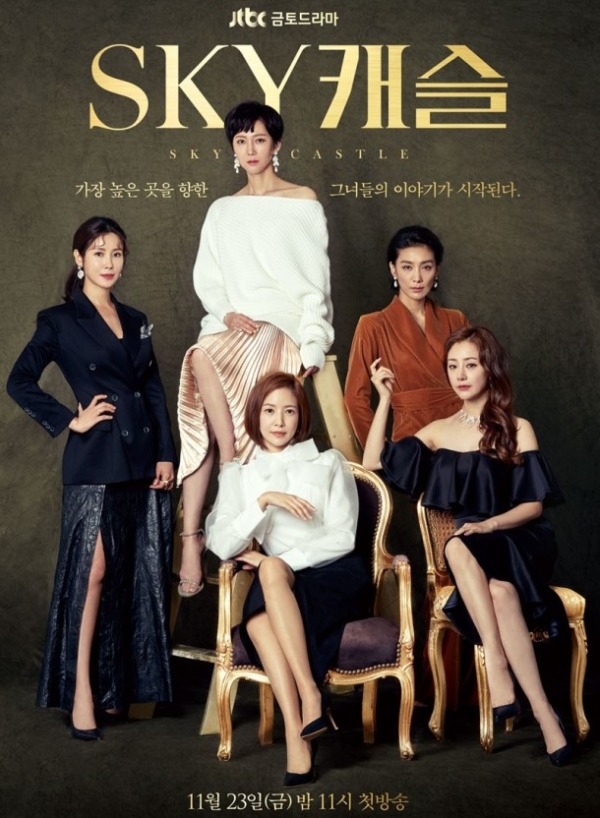
Sky Castle is a comic satire drama that satirizes the lives of 0.1 percent of high-class families who struggle by any means to send their children to prestigious universities. The factors behind the success of the drama were, above all, the actors’ masterpiece performances and the dramatic plot line of the drama. Yet in addition to them, Sky Castle was able to become a big hit since it revealed and satirized the reality of the education problem in Korea, using private education and entrance exams as materials that Koreans could easily sympathize with.
While gaining explosive popularity, the drama also received a lot of criticism right after the last episode was aired. At the end of the drama, a mother who wanted to get her child to enter Korea’s top medical school says that only after giving all up, now she herself wonders why she lived struggling for college admission. A child from another family drops out of school and goes on a trip to find himself. Viewers expressed their disappointment, pointing out that they had no choice but to take the ending as meaning that they must have enough wealth to go abroad or support their studies even if they drop out.
Due to this ending, I also could not quell the abominable and eerie feelings I got after watching the drama for a while. While the life of the so-called “dirt spoons” ends in a tragedy, the so-called “gold spoons” with wealthy parents find enlightenment from the death of their opposite. Sky Castle, in the end, became a satirical play that reflected the gloomy reality of our country.
Whenever I watched the drama, I used to pay attention to two things, the polarization of wealth and private education. The cycle of wealth or poverty and the remorseless increase in education polarization are closely connected as if they were a chain that constantly rotates. And what suffocates me is that it seems like reality never changes easily, and that this will last forever with no obvious solution.
But in fact, the current craze for private education could be a natural phenomenon in some way. The drama “Under the Queen’s Umbrella,” called the Chosunversion of Sky Castle, was hugely popular with nearly 17 percent of viewer ratings last year. By the story of the queen who engages in a fierce royal education competition for her princes, the drama tells us that the zeal for education in Korea has always been hot throughout our history. That is to say, the private education craze is natural enough to last for a long time.
What’s more, some criticized that Sky Castle backfired against the original intention of the drama. Far from what the drama aimed to tell and accused of excessive private education in Korea, the college entrance examination consultancy business has become more active than before. It is an ironic phenomenon that people got obsessed with private education after watching a drama that satirizes the obsession with it.
So, can private education disappear? Controversy has always arisen over the abolition of private education, and various alternatives such as absolute evaluation in high school grades have been suggested, introduced, and eventually disappeared. Still, the end of private education is realistically impossible. The solution, therefore, might be to prevent the craze for a private education from leading to education polarization. It is natural for people with wealth to invest a lot in their children’s education, and unfortunately, wealth and poverty are handed down but cannot be helped. The polarization of education is not a matter of course, however. Thus, now our task should be to seek practical alternatives to ensure that children without private education can compete as fairly as possible without being frustrated by education polarization.

